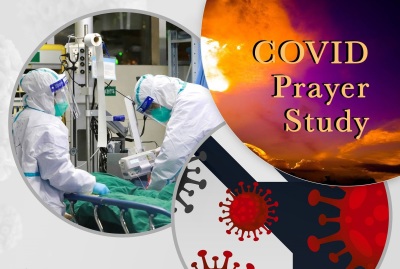Researchers launch clinical study to measure impact of prayer on coronavirus

An international team of doctors, led by Kansas City cardiologist Dr. Dhanunjaya Lakkireddy of the Kansas City Heart Rhythm Institute, is currently conducting a clinical study to measure the impact of prayer in the health outcomes of coronavirus patients.
“Prayer is often used as a medium to invoke divine intervention for affirmation of life, healing of the sick and protection of the vulnerable. This often remains a controversial intervention from a scientific perspective. Although used regularly in the inpatient setting of critically ill patients, the benefit of prayer on healthcare outcomes has been heavily debated,” the researchers noted in the overview of the study.
“While historical studies have aimed at demonstrating improved health outcomes in patients who pray, these studies are typically difficult to reproduce and are subject to bias. Many studies have attempted to focus on improvement in quality of life or improvement in symptoms of psychiatric disease. The lack of available information regarding the impact of prayer on inpatient outcomes prompted our further investigation.”
Lakkireddy explained in an interview with NPR that the study will involve 1,000 patients with coronavirus infections severe enough that they require intensive care.
All the patients will receive the standard of care prescribed by their medical providers but half of the randomly chosen patients will receive a "universal" prayer from one of five religions: Christianity, Hinduism, Islam, Judaism and Buddhism. The other 500 patients will constitute the control group.
Lakkireddy said the medical professionals he has assembled for the study’s steering committee are also all people of faith.
"We all believe in science and we also believe in faith," he told NPR. "If there is a supernatural power, which a lot of us believe, would that power of prayer and divine intervention change the outcomes in a concerted fashion? That was our question."
The study will measure outcomes such as mortality rate differences, hospital length of stay, length of ventilator support, and ICU length of stay, among other things.
Lakkireddy, who was "born into Hinduism," noted that he attended a Catholic school and spent time in synagogues, Buddhist monasteries and mosques.
"I believe in the power of all religions," he said. "I think if we believe in the wonders of God and the universal good of any religion, then we've got to combine hands and join the forces of each of these faiths together for the single cause of saving humanity from this pandemic."
All patients in the study will receive a COVID PRAYER STUDY Identification number and the prayer below will be used, according to the study.
Dear God
We pray you to bless our friend (CPS ID)
We pray you to give our friend the strength to pull through this sickness
We pray you to heal our friend from this disease that is consuming him
We pray you to give the health care professionals involved in our friend’s care, the necessary courage, wisdom and protection
We pray you to quickly put an end to this global scourge, save the world and prevent sickness to the rest of our brothers and sisters
We pray you to bring solace, strength and resolve to fight this deadly virus with all our might
Thank you for hearing us out and bestowing your divine will on our friend and many others around us.
While previous studies have found no significant effect of prayer on patient outcomes, Lakkireddy, who said his medical colleagues have had "a mixed reaction" to his study, said: "A miracle could happen. There's always hope, right?"





















